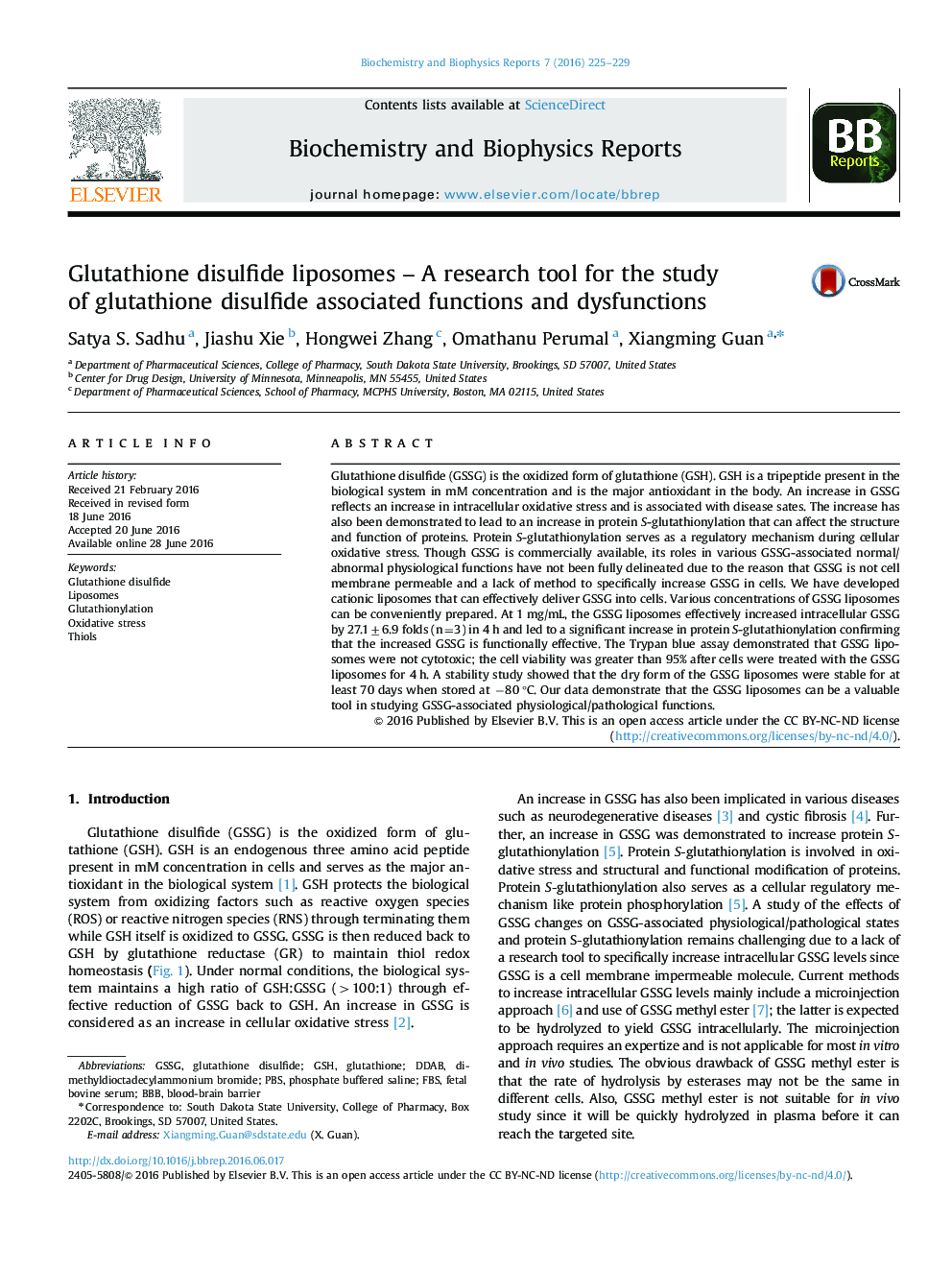| Article ID | Journal | Published Year | Pages | File Type |
|---|---|---|---|---|
| 1941625 | Biochemistry and Biophysics Reports | 2016 | 5 Pages |
•Glutathione disulfide (GSSG) liposomes were developed to deliver GSSG into cells.•The GSSG liposomes effectively increased intracellular GSSG by 27.1±6.9 folds.•The delivered GSSG is confirmed to be functionally effective through protein S-glutathionylation.
Glutathione disulfide (GSSG) is the oxidized form of glutathione (GSH). GSH is a tripeptide present in the biological system in mM concentration and is the major antioxidant in the body. An increase in GSSG reflects an increase in intracellular oxidative stress and is associated with disease sates. The increase has also been demonstrated to lead to an increase in protein S-glutathionylation that can affect the structure and function of proteins. Protein S-glutathionylation serves as a regulatory mechanism during cellular oxidative stress. Though GSSG is commercially available, its roles in various GSSG-associated normal/abnormal physiological functions have not been fully delineated due to the reason that GSSG is not cell membrane permeable and a lack of method to specifically increase GSSG in cells. We have developed cationic liposomes that can effectively deliver GSSG into cells. Various concentrations of GSSG liposomes can be conveniently prepared. At 1 mg/mL, the GSSG liposomes effectively increased intracellular GSSG by 27.1±6.9 folds (n=3) in 4 h and led to a significant increase in protein S-glutathionylation confirming that the increased GSSG is functionally effective. The Trypan blue assay demonstrated that GSSG liposomes were not cytotoxic; the cell viability was greater than 95% after cells were treated with the GSSG liposomes for 4 h. A stability study showed that the dry form of the GSSG liposomes were stable for at least 70 days when stored at −80 °C. Our data demonstrate that the GSSG liposomes can be a valuable tool in studying GSSG-associated physiological/pathological functions.
